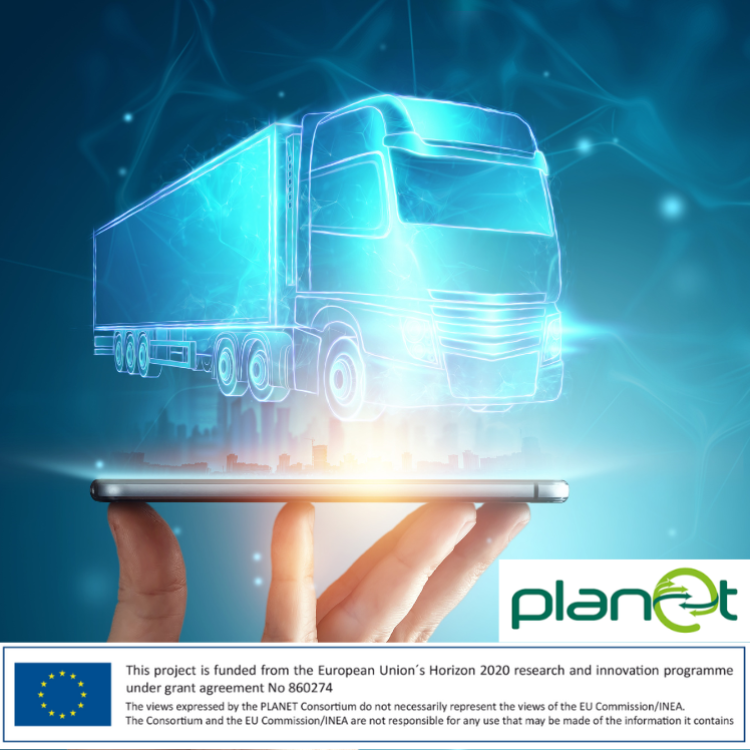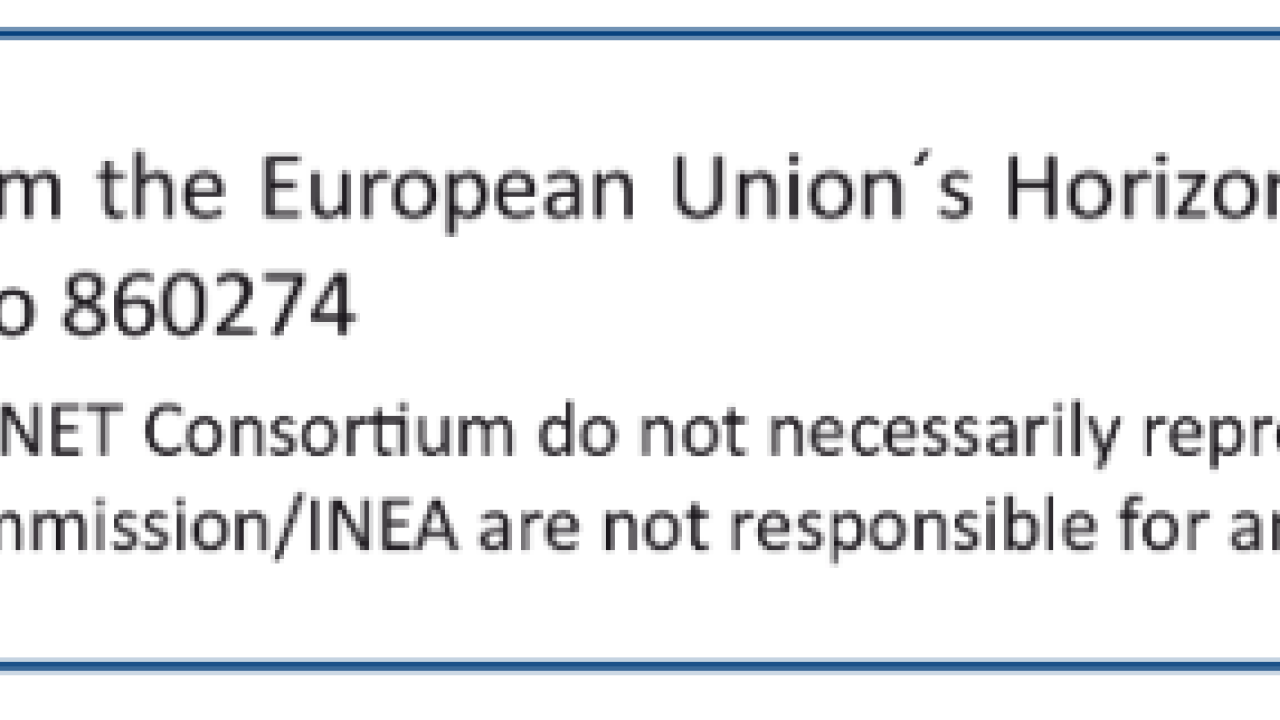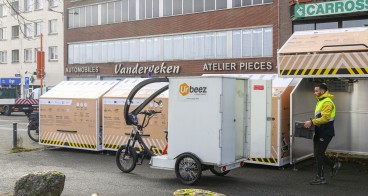The Physical Internet arrives to Madrid's last mile distribution

The Challenge
The CITYlogin collaboration with Horizon Europe PLANET Project has addressed the challenge of last mile deliveries by controlling and modelling delivery processes from distribution centres to the final consumer in the city of Madrid, using Physical Internet technology, such as Blockchain or Artificial Intelligence.
The study of these last mile operations goes from the identification of the vehicle route in order to complete the delivery within the designated time slot to the identification of delayed and non-delayed vehicles in order to reorganise routes and complete the deliveries within the adequate time slot.
This study is very relevant to the Physical Internet concept, because it uses real-time tracking of parcels and vehicles to reorganize both of them on the fly and reach the best operational scenario.
The KPIs that have been formalized are:
- Average Distance traveled per vehicle.
- Total number of transport vehicles used per mode.
- Number of on-time deliveries.
- Operating costs of last-mile deliveries.
- CO2 emissions (Kgs/ton).
- Average delivery time.
The Solution
The identified solution was through the creation of a software which could deal with the uncertainty of last mile deliveries by applying a real-time decision-making approach, implementing Physical Internet to assist the uncertainty of last mile operators and generating a dynamic and optimized route for parcel deliveries.
That solution was based on the following technology and innovation tools:
- Physical Internet: The use of open-logistic and transport networks helped to integrate transport planning through collaboration to share resources without boundaries.
- Internet of Things (IoT): the connection and data sharing with other systems helped to increase the end-to-end visibility all over the supply chain.
- Optimization for decision making: linear programming (one of the most studied and successful methods) was used to develop and optimize the decision making system.
- Sustainable logistics: sustainable logistics models have been studied to be implanted in the development of all the last mile delivery processes.
These solutions were identified within the scope of the PLANET project. The impact assessment data can be consulted here.
Responsible Authors: Christina Georgouli, Orestis Tsolakis and Georgia Ayfantopoulou (CERTH), with contributions from Teresa de la Cruz (ZLC), Itainnova and VLTN.

Making an impact
The impacts were divided in three categories:
Technical and operational impacts: the operational efficiency was increased, the forecasting and route planification were improved and the visibility across the whole supply chain process was improved with real time information.
Business and financial impacts: the incrementation of the orders fulfilled resulted in a reduction of operational and transport costs. Moreover, the compliance cost associated with the time spent with customers decreased too.
Environmental and social impacts: CO2 emissions were reduced and the customer experience was improved, bringing trust, transparency and collaboration.

Lessons learnt
The main lessons learnt from this project are the following:
- The installation of GPS trackers inside the vehicles and inside the parcel barcodes can help trace the fleet and parcel locations (delivered/not delivered) in the last mile.
- A complete visibility was achieved by last mile logistics operators using warehouse space data, vehicle capacity and real time location, which can be used without ownership issues.
- The dynamic match of delayed and not-delayed vehicles is vital to deliver the parcels in the time slot required by the client.
- The replacement of gas or diesel vehicles by electric and hybrid vehicles has achieved a more sustainable last mile through the reduction of CO2 emissions and noise in the cities.







